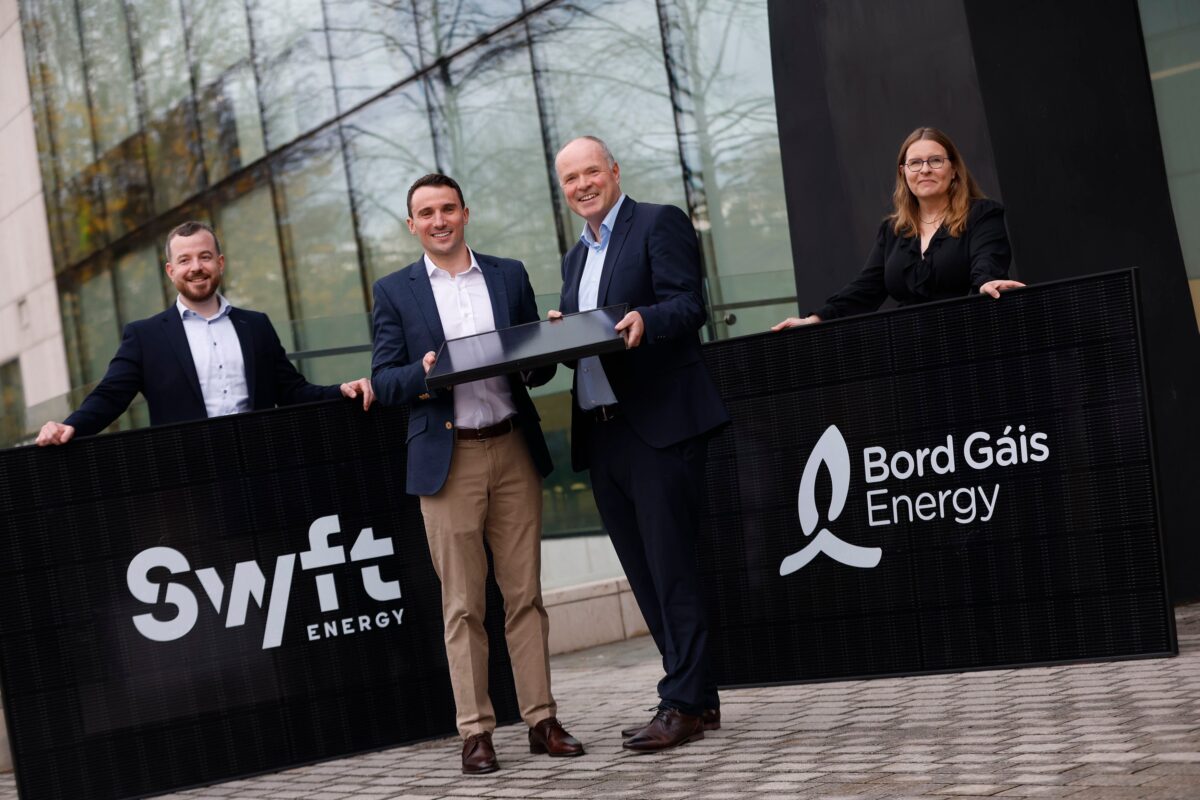Bord Gáis Energy, one of Ireland’s biggest energy suppliers, has bought Swyft Energy, a solar PV installer based in County Cork, Ireland.
No financial details were disclosed along with the acquisition news, and the deal is subject to final approval by the Competition and Consumer Protection Commission.
Swyft has an online platform that helps potential customers with installation options, as well as grant options and product details. They can avail themselves of a free in-person consultation with one of the company’s engineers to discuss their options before deciding on a time and date for the installation to take place.
In addition to solar PV systems for homes, agriculture, schools, and businesses, Swyft also specializes in boilers.
According to the company’s website, it has completed almost 13,000 installations in the last year alone. To date, it has processed €16 million ($16.9 million) worth of government grants on behalf of its customers.
“We are excited to combine our technology platform and experienced team, with Bord Gáis Energy’s brand and large customer base to deploy energy products at scale over the coming years. The demand for solar PV is driving forward at a pace, with many people keen to make the switch, especially when they realize potential savings,” said Swyft co-founder, Adrian Casey.
Although already active in the solar PV market, Bord Gáis wants to increase its installation abilities. It serves residential customers as well as agribusinesses through its partnership with the Irish farming lobby group, the Irish Farmers’ Association.
Swyft’s acquisition by Bord Gáis Energy will help the utility as it strives to meet its target of 10,000 solar PV installations over the next five years. The utility, which is owned by UK company Centrica, is targeting net zero emissions across its operation by 2045.
Dave Kirwan, Managing Director of Bord Gáis Energy called the deal with Swyft “another key component” in its energy transition targets.
“By 2030, Bord Gáis Energy expects all of its electricity customers to be powered with indigenous renewable generation. The role of solar in this transition is compelling – our customers can save up to 70% off electricity bills. The Government’s Climate Action Plan (CAP) is targeting 8 GW of installed solar capacity by 2030 and residential, business and agrisolar will play a key role in delivering on those targets.”
This content is protected by copyright and may not be reused. If you want to cooperate with us and would like to reuse some of our content, please contact: editors@pv-magazine.com.




By submitting this form you agree to pv magazine using your data for the purposes of publishing your comment.
Your personal data will only be disclosed or otherwise transmitted to third parties for the purposes of spam filtering or if this is necessary for technical maintenance of the website. Any other transfer to third parties will not take place unless this is justified on the basis of applicable data protection regulations or if pv magazine is legally obliged to do so.
You may revoke this consent at any time with effect for the future, in which case your personal data will be deleted immediately. Otherwise, your data will be deleted if pv magazine has processed your request or the purpose of data storage is fulfilled.
Further information on data privacy can be found in our Data Protection Policy.